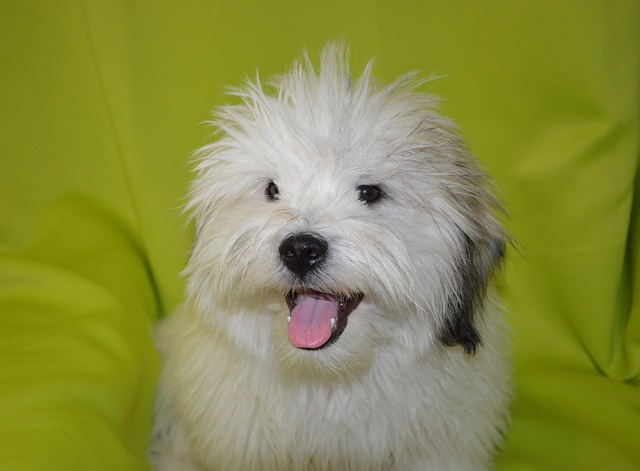
How can I tell if my dog's heatstroke is serious
Let’s be real: It’s a sticky August morning in Los Angeles, and you took your 2-year-old Golden Retriever, Max, for a walk a little later than usual
New dog owners often fixate on a timeline: “When will he stop chewing my shoes?” “How long until she comes when called every time?” The truth is, there’s no one-size-fits-all answer—how quickly a dog learns a habit depends on so much more than just weeks or months. It’s a mix of their age, the habit’s complexity, how consistent you are, and even their unique personality. Rushing the process only leads to frustration, for both of you.
Puppies, with their sponge-like brains, might pick up simple habits faster than adult dogs—but don’t let that fool you. A 12-week-old pup can learn to “sit” for a treat in a few days, but turning that into a reliable habit takes weeks. Their short attention spans mean training sessions need to be 5 minutes or less, several times a day. Adult dogs, especially rescues, might take longer if they’re unlearning old habits—like jumping on guests or begging at the table. A dog who’s spent years getting scraps from the dinner table won’t break that habit in a week; it takes steady, calm redirection to teach them “no” means “no, even if you stare.”
 Not all habits are created equal, either. Simple, single-action habits—like “drop it” when they grab a toy—often stick in 2-4 weeks with daily practice. But complex habits, the ones that require self-control, take longer. Take “staying off the couch” for example. It’s not just about avoiding the couch once; it’s about resisting the urge every time you’re not looking, when the cushion smells like you, or when they’re tired. That might take 2-3 months, especially if they’ve already claimed the couch as their favorite spot. The key is breaking big habits into small steps: first, reward them for standing next to the couch, then for sitting on their bed instead, until the new behavior feels automatic.
Not all habits are created equal, either. Simple, single-action habits—like “drop it” when they grab a toy—often stick in 2-4 weeks with daily practice. But complex habits, the ones that require self-control, take longer. Take “staying off the couch” for example. It’s not just about avoiding the couch once; it’s about resisting the urge every time you’re not looking, when the cushion smells like you, or when they’re tired. That might take 2-3 months, especially if they’ve already claimed the couch as their favorite spot. The key is breaking big habits into small steps: first, reward them for standing next to the couch, then for sitting on their bed instead, until the new behavior feels automatic.
Consistency is the secret sauce that either speeds things up or slows them down. Training for 10 minutes daily works better than cramming an hour once a week. If one day you let them beg at the table but scold them the next, they’ll get confused—“Is this okay sometimes?” Mixed signals can double the time it takes for a habit to stick. Positive reinforcement helps, too. Praising loudly or offering a tiny treat the second they do the right thing (not 5 minutes later) wires their brain to link “good behavior” with “good stuff.” Skimping on that feedback? It’s like trying to bake a cake without heat—you’ll wait a lot longer for results.
Personality plays a role, too. Some dogs are eager to please—goldens or poodles might latch onto a new habit in weeks because they live for your approval. Others, like terriers or hounds, have a stubborn streak. They might “get it” but choose to ignore you when something more interesting comes along. That doesn’t mean they’re being bad; they just need extra patience. Adjust your approach: make the habit more rewarding than the distraction, and keep sessions playful so they don’t tune out.
There’s no finish line with a clear date, and that’s okay. A habit truly sticks when your dog does it without thinking—when “sit” happens before you even say the word, or they head to their bed without being told. That might take 3 weeks for one dog, 3 months for another. What matters isn’t the timeline, but showing up daily: the same calm cues, the same excitement when they get it right, and the same patience when they don’t. Before you know it, that “new habit” becomes just how they are—and that’s the best reward of all.

Let’s be real: It’s a sticky August morning in Los Angeles, and you took your 2-year-old Golden Retriever, Max, for a walk a little later than usual

You're enjoying a summer afternoon at the park when you notice your dog has stopped panting and appears disoriented - their gums are bright red

Let’s paint the picture: You’re in your Denver apartment, watching your 4-year-old Boston Terrier, Ruby, plop down mid-play session with her favorite toy

Many dog owners notice their pets nails seem shorter after regular walks,but how much does this daily activity actually help?The answer depends on where you walk—concrete sidewalks or asphalt streets gently file nails as a dog's paws hit the ground

Most dog owners notice their pup scooting across the carpet at some point, but few connect it to impacted anal glands. These small sacs near a dog’s rectum secrete a scent for marking territory

Most vets agree that regular dog teeth cleaning is key to avoiding painful dental issues later. For healthy adult dogs, a professional cleaning at the vet’s office every 12 to 18 months usually works well.